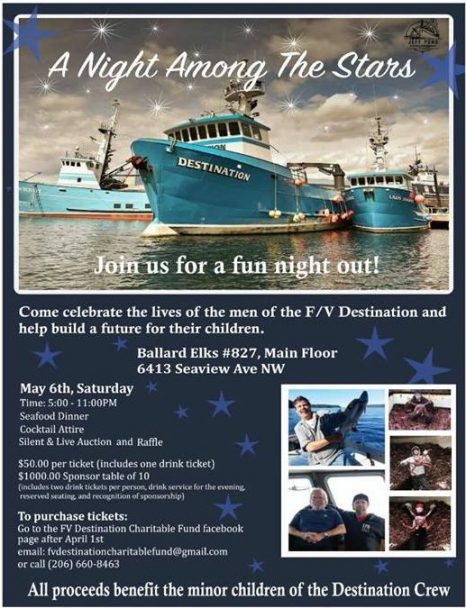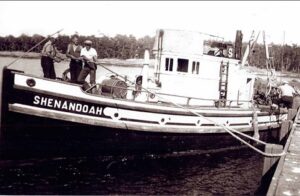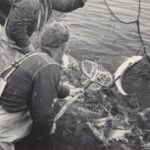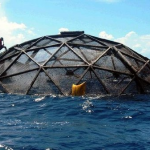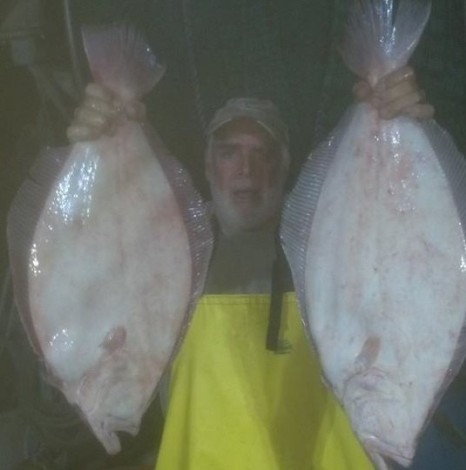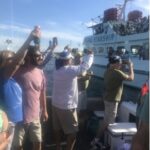Category Archives: Pacific
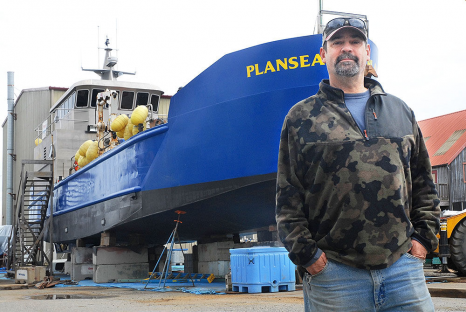
Plansea casts off; Marilyn J to be painted
Two old boats are being upgraded and improved to provide many more years’ worth of service. Craftsmen United at the Port of Port Townsend boatyard is working on the 78-foot FV Plansea tender and 62-foot Marilyn J fishing boat. “It’s a thing of beauty,” said Dan Wiggins, president of Craftsmen United, of the bright blue Plansea, which was on blocks near Building 21 at the yard last Wednesday, May 17. Several workers scurried in and around the ship to get it ready for a haulout that was scheduled later in the week. Wiggins said Plansea was built in 1954 in New Orleans by Higgins Industries as a military landing craft. Wiggins’ work on the ship has improved it tremendously since he acquired it in 2014, he said. Back then, the boat was on the verge of sinking in Port Orchard, he noted. He had the boat towed to Port Townsend and inspected the hull. click here to read the story 08:36
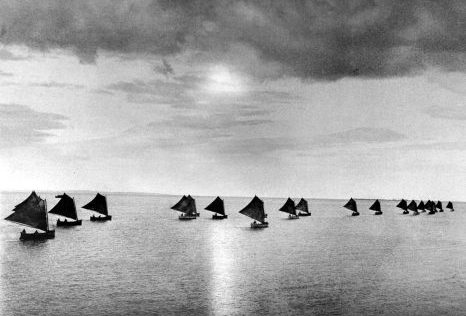
When sailboats ruled Bristol Bay
One hundred and thirty-two years ago, the Bristol Bay commercial fishery began on the shores of the Nushagak River when the first cannery went into operation and canned a little more than 4,000 salmon. Within four years, three more canneries appeared on the Nushagak, and within a decade canneries were built on the Naknek and Kvichak rivers. The dawn of the 20th century saw dozens of canneries around Bristol Bay catching, processing and canning millions of pounds of sockeye salmon every summer. By 1910, Bristol Bay accounted for 40 percent of Alaska’s commercially caught salmon. Even today, Bristol Bay makes up about 40 percent of Alaska’s salmon value. Canneries are large industrial operations. In the early days, coal and steam provided the power to run complex systems of boilers, belt-driven pulleys and winches needed to butcher, cook, can and deliver salmon to the world. But when it came to actually catching fish in Bristol Bay, canneries relied upon the muscle of men and the power of wind. click here for images, and read the story 11:27
Bad salmon run hints at trouble ahead
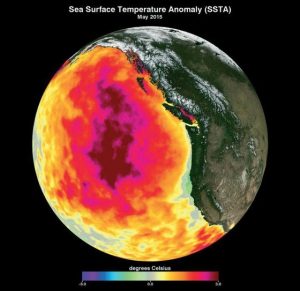 Count backward three years and we come to 2014 — precursor to this spring’s extremely poor salmon returns. Fewer than 20,000 adult spring Chinook and about 1,500 immature jacks have been counted at Bonneville Dam, compared to 10-year averages of about 127,000 and 17,000. Shad, another species that should begin surging toward inland spawning grounds about now, reached a count of 26 at Bonneville late last week, compared to the 10-year average of more than 11,000. In the case of Chinook, actual returns may not be quite so bleak as the dam count indicates. Heavy mountain runoff has made the Columbia’s water cloudy and cold. Test fisheries found quite a few Chinook loitering here in the estuary, delaying their swim upstream. But with the start of summer only a month away, there isn’t much time left for the spring run to come through. If they don’t make it to spawning grounds, the run three years from now also will be weak. click here to read the op-ed 09:36
Count backward three years and we come to 2014 — precursor to this spring’s extremely poor salmon returns. Fewer than 20,000 adult spring Chinook and about 1,500 immature jacks have been counted at Bonneville Dam, compared to 10-year averages of about 127,000 and 17,000. Shad, another species that should begin surging toward inland spawning grounds about now, reached a count of 26 at Bonneville late last week, compared to the 10-year average of more than 11,000. In the case of Chinook, actual returns may not be quite so bleak as the dam count indicates. Heavy mountain runoff has made the Columbia’s water cloudy and cold. Test fisheries found quite a few Chinook loitering here in the estuary, delaying their swim upstream. But with the start of summer only a month away, there isn’t much time left for the spring run to come through. If they don’t make it to spawning grounds, the run three years from now also will be weak. click here to read the op-ed 09:36
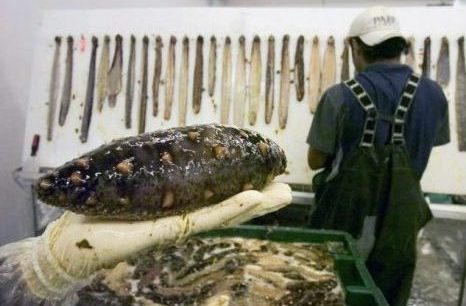
Father and Son Busted With More Than $17M in Sea Cucumbers
A father and son have been indicted on charges of smuggling illegally harvested sea cucumbers worth more than $17 million into the United States and selling the Chinese delicacy on Asian markets. Depending on the species, sea cucumbers can go for as much as $300 a pound in China and Hong Kong, authorities say. Ramon Torres Mayorquin and his son, David Mayorquin, were charged in federal court in San Diego of conspiracy, false labeling and unlawful importation of wildlife, according to The San Diego Union-Tribune. Their company, Blessings Inc. of Tucson, Arizona, was also charged. Between 2010 and 2012, the family knowingly agreed to purchase roughly $13 million worth of illicitly harvested sea cucumbers from poachers operating off the Yucatan Peninsula, according to the indictment filed Wednesday. They then allegedly imported the product and sold it to Asian markets for about $17.5 million. Click here to read the story 11:23
Washington State loses major legal battle, might pay up to $2B to save salmon
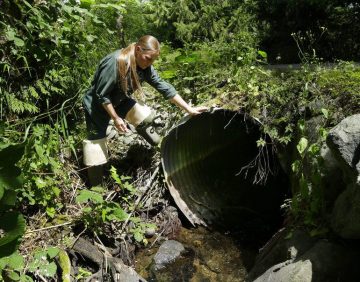 Washington state lost a major legal battle Friday, which could force it spend nearly $2 billion to restore salmon habitat by removing barriers that block fish migration. A panel of the 9th U.S. Circuit Court of Appeals last year affirmed a lower court’s 2013 ruling ordering the state to fix or replace hundreds of culverts — large pipes that allow streams to pass beneath roads but block migrating salmon. Idaho and Montana joined Washington state in asking the appeals court to reconsider the case. The court declined to do so Friday, but several judges dissented from that decision, saying it should be reconsidered because of its significance. “This is a win for salmon, treaty rights and everyone who lives here,” Lorraine Loomis, chair of the Northwest Indian Fisheries Commission, said in a statement. The group represents 21 tribes in western Washington that challenged the state over the culverts in 2001, part of decades-long litigation over tribal fishing rights. click here to read the story 10:34
Washington state lost a major legal battle Friday, which could force it spend nearly $2 billion to restore salmon habitat by removing barriers that block fish migration. A panel of the 9th U.S. Circuit Court of Appeals last year affirmed a lower court’s 2013 ruling ordering the state to fix or replace hundreds of culverts — large pipes that allow streams to pass beneath roads but block migrating salmon. Idaho and Montana joined Washington state in asking the appeals court to reconsider the case. The court declined to do so Friday, but several judges dissented from that decision, saying it should be reconsidered because of its significance. “This is a win for salmon, treaty rights and everyone who lives here,” Lorraine Loomis, chair of the Northwest Indian Fisheries Commission, said in a statement. The group represents 21 tribes in western Washington that challenged the state over the culverts in 2001, part of decades-long litigation over tribal fishing rights. click here to read the story 10:34
In the News – Sig Hansen arrested after incident with Uber driver
 “Deadliest Catch” Captain Sig Hansen was arrested and booked into the King County Jail early Thursday on suspicion of assault and property destruction. According to the Seattle Police Department, an Uber driver picked Hansen and two other passengers up in Ballard after 2 a.m. The group asked to pay cash. When the driver told them they couldn’t because that’s not how the app works, Hansen allegedly got out of the car and kicked the rear of the vehicle. He also allegedly spat on the Uber driver. The driver told officers Hansen and the other passengers appeared “intoxicated.” Hansen was later arrested at a home in Shoreline and then booked into the King County Jail. link 14:32
“Deadliest Catch” Captain Sig Hansen was arrested and booked into the King County Jail early Thursday on suspicion of assault and property destruction. According to the Seattle Police Department, an Uber driver picked Hansen and two other passengers up in Ballard after 2 a.m. The group asked to pay cash. When the driver told them they couldn’t because that’s not how the app works, Hansen allegedly got out of the car and kicked the rear of the vehicle. He also allegedly spat on the Uber driver. The driver told officers Hansen and the other passengers appeared “intoxicated.” Hansen was later arrested at a home in Shoreline and then booked into the King County Jail. link 14:32
Commercial rock crab season emergency closure extended for public safety
 The emergency closure of the Northern California commercial rock crab season, which was set to end today, has been extended by the California Department of Fish and Wildlife (CDFW) due to public safety concerns over potential toxins in the area. The closure covers commercial rock crab fishing from Bodega Bay in Sonoma County to the Oregon border. The closure comes after state health officials detected high levels of domoic acid in rock crabs found in the region last fall, which can pose health risks and be toxic if eaten. The closure was set to expire today, but CDFW Director Charlton H. Bonham extended the commercial crabbing restriction using a new authority granted to him this year. Click here to read the story 09:42
The emergency closure of the Northern California commercial rock crab season, which was set to end today, has been extended by the California Department of Fish and Wildlife (CDFW) due to public safety concerns over potential toxins in the area. The closure covers commercial rock crab fishing from Bodega Bay in Sonoma County to the Oregon border. The closure comes after state health officials detected high levels of domoic acid in rock crabs found in the region last fall, which can pose health risks and be toxic if eaten. The closure was set to expire today, but CDFW Director Charlton H. Bonham extended the commercial crabbing restriction using a new authority granted to him this year. Click here to read the story 09:42
Crab fishing organization says State of California commission unfairly changed policy on crabbing season
 A crabbing association is suing the California Department of Fish and Wildlife and California Fish and Game Commission, alleging violation of federal law. Tri-State Crab Producers Association filed a complaint on April 5 in the San Francisco County Superior Court against the defendants alleging that they attempted to alter and delay the beginning of the crabbing season. According to the complaint, the plaintiff alleges that it suffered damages due to the changes in the departments’ policies regarding crabbing season. Click here to read the story 09:40
A crabbing association is suing the California Department of Fish and Wildlife and California Fish and Game Commission, alleging violation of federal law. Tri-State Crab Producers Association filed a complaint on April 5 in the San Francisco County Superior Court against the defendants alleging that they attempted to alter and delay the beginning of the crabbing season. According to the complaint, the plaintiff alleges that it suffered damages due to the changes in the departments’ policies regarding crabbing season. Click here to read the story 09:40
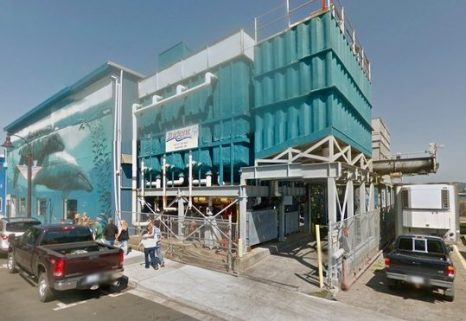
Oregon: Attorney General gives green light to Pacific Seafood to buy Trident, with a few strings attached
From Pacific Seafood: Thanks to quick action by Attorney General Ellen Rosenblum, Newport’s surimi processing plant, the last such plant on the West Coast, will remain in Newport and open in time for the 2017 Whiting season, which starts on Monday. The Oregon Department of Justice (DOJ) reviewed a proposal by Pacific Seafood to keep the plant open and word came today that it’s a green light. Governor Kate Brown and the Legislature’s Coastal Caucus, including Senator Arnie Roblan, Senator Betsy Johnson, and Representative David Gomberg, were instrumental in facilitating review in time for the season start. “We very much appreciate the Governor and Attorney General’s leadership in addressing this extraordinary situation,” said Dan Occhipinti, a spokesman for Pacific Seafood. “They moved quickly to reach a solution that saves 147 traded-sector jobs, retains the market for Newport’s commercial fishing fleet, and preserves Oregon’s access to a major export market.” click here to read the story 09:27
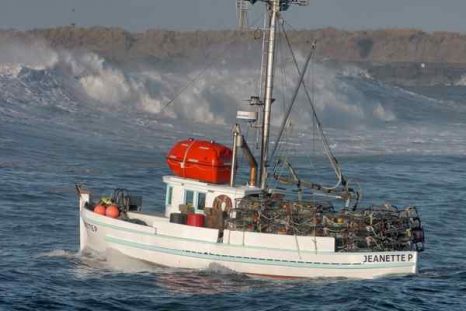
With no relief funds in sight, crab fishermen discuss next steps
After four years of poor crab and salmon fishing, including one of the worst crab seasons in recent memory, local fisherman and Eureka resident Bob Borck decided in November that it was time to move on. After selling his fishing vessel — the Belle J II — of four years in January, Borck is now planning to start work as a contractor. “I couldn’t be married to the boat,” he said Friday. “I’ve got enough family responsibilities on shore that it was too difficult to dedicate it to everything it needed to be.” Borck said he isn’t walking away from the industry completely if the right opportunity presents itself. But he said isn’t pining to return to it either, especially following a “pretty hard financial beating” after toxic algae blooms closed the 2015-16 Dungeness crab season for six months, placing many fishermen into debt. Borck’s story is not unique. Click here to read the story 08:01
Boat owners fooled by website charging high prices for vessel documentation
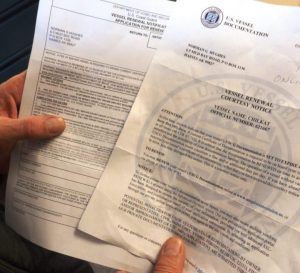 This is the time of year when Alaska fishermen make sure they have their paperwork in order so they’re ready to hit the water. But recently, some of those boat owners were targeted by a third-party service that charges much higher rates for Coast Guard certification. “I want to go fishing, I want to be done with all this paperwork,” said Haines commercial fisherman Norm Hughes. Earlier this month, he received a letter in the mail telling him to renew his Coast Guard documentation. It directed him to a website: uscgdocumentation.us. Hughes went to the website right away and paid $150 for a two-year renewal.,,, It’s not just Alaska fishermen and the Coast Guard here that have raised alarms about the US Vessel Documentation website. Click here to listen/read the story 18:02
This is the time of year when Alaska fishermen make sure they have their paperwork in order so they’re ready to hit the water. But recently, some of those boat owners were targeted by a third-party service that charges much higher rates for Coast Guard certification. “I want to go fishing, I want to be done with all this paperwork,” said Haines commercial fisherman Norm Hughes. Earlier this month, he received a letter in the mail telling him to renew his Coast Guard documentation. It directed him to a website: uscgdocumentation.us. Hughes went to the website right away and paid $150 for a two-year renewal.,,, It’s not just Alaska fishermen and the Coast Guard here that have raised alarms about the US Vessel Documentation website. Click here to listen/read the story 18:02
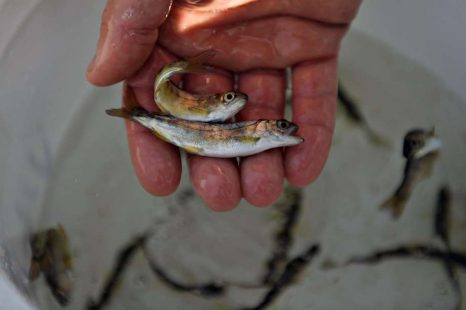
200,000 Salmon survive Oroville spillway’s erosion only to suffocate this week
A quarter-million hatchery salmon survived the near-collapse of a California dam’s spillway this winter, only to suffocate after a pump failed this week, officials said Thursday. They were among about 5 million baby fall-run Chinook salmon that were rescued in February after tons of mud washed down the Feather River, said California Department of Fish and Wildlife spokesman Andrew Hughan. The erosion came from the failing emergency spillway near the Oroville dam that caused the precautionary evacuation of nearly 200,000 residents. Click here to watch video, read the story, and view 31 images 15:46
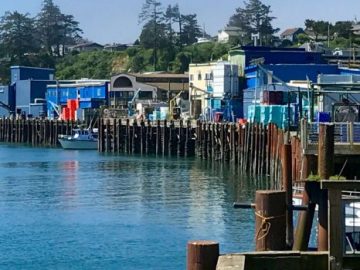
Pacific Seafood, DOJ in fiery clash over Newport expansion
Pacific Seafood Group, the industry’s billion-dollar behemoth, has thoroughly shaken up this bustling commercial fishing town with an expansion blitz that will increase its already dominant market position. But before going ahead with a deal to buy the hulking Trident Seafood processing plant in the heart of Newport’s Bayfront, the biggest player in the West Coast seafood business made what one lawmaker called an “unprecedented request.”,,, Pacific may have overplayed its hand. In a blistering response to the company late Thursday afternoon, the Department of Justice threatened to take enforcement action against the company unless it agrees to put the Trident plant on the market for a year and, short of a sale, operate it for at least three years. Click here to read the article 09:30
Telling it like it is – Lack of salmon passage hurts fishermen
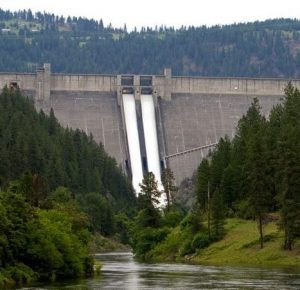 To keep producing swimming pool water, green lawns and golf courses in the desert you have to kill wild and hatchery salmon and California is not slowing down one bit. I want you to name one dam built in Idaho that has a working fish ladder, or was built with the intent to have a fish ladder but got a senatorial dispensation to forgo that cost. Why shouldn’t Idaho Power and ratepayers pay to keep salmon from extinction? There is no free lunch in energy production, and you fail to mention that Oregon taxpayers are still on the hook for renewable energy tax forgiveness to foreign companies who have so many tax credits they sold them to other mega-national companies to reduce their state taxes. I live here. I have paid my dues. I am going to be asked by the liberal bunch of legislators to cover up their give-aways with higher taxes so they can give raises to the poor public employees whose pension and health care costs have become a considerable burden to everyone who lives and works in Oregon. The money should have been there but the Blue State power broker Democrats sold us out to have environmental cred on the record. No Oregon troller can now fish south of the south Jetty at Florence on the Siuslaw River to the California border. It is impacting all the commercial and recreational fishing from Brookings to Winchester Bay. John Thomas Jr., F/V Solimar, Newport, Ore. Click here to read it. It’s real good, too. 19:31
To keep producing swimming pool water, green lawns and golf courses in the desert you have to kill wild and hatchery salmon and California is not slowing down one bit. I want you to name one dam built in Idaho that has a working fish ladder, or was built with the intent to have a fish ladder but got a senatorial dispensation to forgo that cost. Why shouldn’t Idaho Power and ratepayers pay to keep salmon from extinction? There is no free lunch in energy production, and you fail to mention that Oregon taxpayers are still on the hook for renewable energy tax forgiveness to foreign companies who have so many tax credits they sold them to other mega-national companies to reduce their state taxes. I live here. I have paid my dues. I am going to be asked by the liberal bunch of legislators to cover up their give-aways with higher taxes so they can give raises to the poor public employees whose pension and health care costs have become a considerable burden to everyone who lives and works in Oregon. The money should have been there but the Blue State power broker Democrats sold us out to have environmental cred on the record. No Oregon troller can now fish south of the south Jetty at Florence on the Siuslaw River to the California border. It is impacting all the commercial and recreational fishing from Brookings to Winchester Bay. John Thomas Jr., F/V Solimar, Newport, Ore. Click here to read it. It’s real good, too. 19:31
Two federal disaster relief funding bills filed to aid California crab and salmon fishing industry
 U.S. Reps. Jackie Speier and Jared Huffman are throwing fishermen a lifeline. They introduced two legislative bills that aim to help people working in the crab and salmon fishing industries by appropriating $140 million in federal disaster relief funding. This follows several difficult fishing seasons that severely affected livelihoods throughout California. The Crab Emergency Disaster Assistance Act of 2017 would secure more than $117 million to provide relief for the California Dungeness and rock crab fishermen and related fisheries.,, In addition, the Yurok Tribe Klamath River Chinook Salmon Emergency Disaster Assistance Act of 2017 would secure nearly $22.5 million to support the affected local community, which holds strong cultural ties to fishing, click here to read the story 07:30
U.S. Reps. Jackie Speier and Jared Huffman are throwing fishermen a lifeline. They introduced two legislative bills that aim to help people working in the crab and salmon fishing industries by appropriating $140 million in federal disaster relief funding. This follows several difficult fishing seasons that severely affected livelihoods throughout California. The Crab Emergency Disaster Assistance Act of 2017 would secure more than $117 million to provide relief for the California Dungeness and rock crab fishermen and related fisheries.,, In addition, the Yurok Tribe Klamath River Chinook Salmon Emergency Disaster Assistance Act of 2017 would secure nearly $22.5 million to support the affected local community, which holds strong cultural ties to fishing, click here to read the story 07:30
‘Financial predator’ who stole millions from widow and partners sentenced to 5 years
 Russell Moore spent nearly 30 years as a Northwest fisherman, investing every dime he had in the company he co-owned with businessman Terrance Cosgrove and three other partners. Cosgrove, it turned out, bilked Moore out of most of his money. He also stole the life savings from the widow and children of his best friend, and raided the trust funds of the family of another close friend, according to a wire-fraud and mail-fraud plea agreement. Moore stood before U.S. District Court Judge John Coughenour on Tuesday morning — with Cosgrove standing nearby — and described the theft that had ruined him. “This was my retirement plan,” Moore said in a Seattle courtroom. “I didn’t get much,” he said, explaining the partners got less than $500,000 of the more than $4 million they had lost after Cosgrove declared bankruptcy. Prosecutors say he stole millions from his partners in the Bothell fishing company and at least $335,000 — maybe much more — from the widow and children of a friend, and at least $500,000 from trusts belonging to the family of another longtime friend. click here to read the story 10:57
Russell Moore spent nearly 30 years as a Northwest fisherman, investing every dime he had in the company he co-owned with businessman Terrance Cosgrove and three other partners. Cosgrove, it turned out, bilked Moore out of most of his money. He also stole the life savings from the widow and children of his best friend, and raided the trust funds of the family of another close friend, according to a wire-fraud and mail-fraud plea agreement. Moore stood before U.S. District Court Judge John Coughenour on Tuesday morning — with Cosgrove standing nearby — and described the theft that had ruined him. “This was my retirement plan,” Moore said in a Seattle courtroom. “I didn’t get much,” he said, explaining the partners got less than $500,000 of the more than $4 million they had lost after Cosgrove declared bankruptcy. Prosecutors say he stole millions from his partners in the Bothell fishing company and at least $335,000 — maybe much more — from the widow and children of a friend, and at least $500,000 from trusts belonging to the family of another longtime friend. click here to read the story 10:57
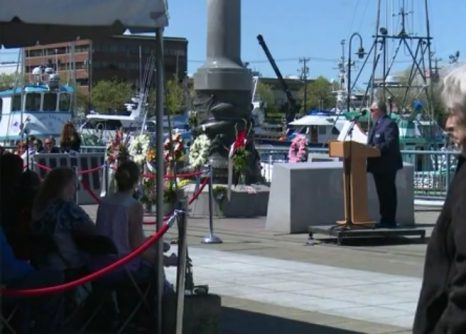
Fisherman’s Memorial remembers ‘Destination’ crew lost at sea
Members of the commercial fishing community came to remember those lost at sea at the Fisherman’s Terminal in Ballard Sunday. The Fisherman’s Memorial is an annual ceremony, but this year it had added importance. In February, the Seattle-based crabbing boat the Destination mysteriously disappeared off the coast of Alaska. It had six crew members on board. click here to view a video, read the rest 10:42
Relief bills seek $140 million aid for California crab and salmon fishery disasters
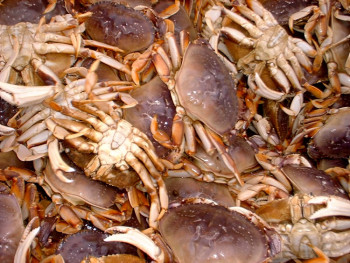 California lawmakers introduced new legislation last week seeking to unlock $117 million in federal disaster aid for commercial fishermen and other business owners financially scarred by a series of catastrophic crab and salmon seasons threatening to upend the state’s fishing industry. North Coast representatives including Congressmen Jared Huffman and Mike Thompson, state Sen. Mike McGuire and Assemblyman Jim Wood, also have petitioned Gov. Jerry Brown to seek a disaster declaration for this year’s severely restricted salmon season, which already portends severe hardship with commercial fleets still in port.,,, Local fishermen, many of them proud and not especially trusting of government, said people who could use assistance aren’t holding their breath. click here to read the story 09:04
California lawmakers introduced new legislation last week seeking to unlock $117 million in federal disaster aid for commercial fishermen and other business owners financially scarred by a series of catastrophic crab and salmon seasons threatening to upend the state’s fishing industry. North Coast representatives including Congressmen Jared Huffman and Mike Thompson, state Sen. Mike McGuire and Assemblyman Jim Wood, also have petitioned Gov. Jerry Brown to seek a disaster declaration for this year’s severely restricted salmon season, which already portends severe hardship with commercial fleets still in port.,,, Local fishermen, many of them proud and not especially trusting of government, said people who could use assistance aren’t holding their breath. click here to read the story 09:04
Washington discusses tangle-net chinook fishery
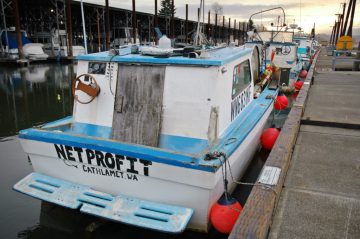 Washington’s Fish and Wildlife Commission on Friday deliberated — but took no vote — on whether a commercial tangle-net spring chinook salmon fishery would be acceptable this year in the lower Columbia River. Washington and Oregon have slightly different polices for managing the Columbia River, the result of the Columbia River reforms process that began in 2013 and go into full implementation this year. Jim Unsworth, director of the Washington Department of Fish and Wildlife, and Curt Melcher, director of the Oregon Department of Fish and Wildlife, have been delegated authority to negotiate the differences, but the talks are not concluded. click here to read the story 15:42
Washington’s Fish and Wildlife Commission on Friday deliberated — but took no vote — on whether a commercial tangle-net spring chinook salmon fishery would be acceptable this year in the lower Columbia River. Washington and Oregon have slightly different polices for managing the Columbia River, the result of the Columbia River reforms process that began in 2013 and go into full implementation this year. Jim Unsworth, director of the Washington Department of Fish and Wildlife, and Curt Melcher, director of the Oregon Department of Fish and Wildlife, have been delegated authority to negotiate the differences, but the talks are not concluded. click here to read the story 15:42
Washington Fish and Wildlife Commission to discuss Columbia River reforms on Friday
The 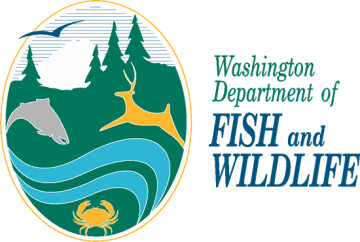 Fish and Wildlife Commission will meet by teleconference at 8:30 a.m. Friday to discuss the Columbia River salmon reforms. The public may listen to the discussion at the Department of Fish and Wildlife office, 2108 Grand Blvd. Earlier this year, the Washington and Oregon commissions adopted slightly different policies regarding the overhaul of sport and commercial fishing regulations for the lower Columbia. The biggest difference is the allocation of fall chinook salmon in 2017 and 2018, plus Washington’s intention to eliminate the use of gillnets beginning in 2019. Commission members on Friday will discuss and clarify the guidance they are giving Jim Unsworth, department director, in his negotiations with Oregon. Link 11:50
Fish and Wildlife Commission will meet by teleconference at 8:30 a.m. Friday to discuss the Columbia River salmon reforms. The public may listen to the discussion at the Department of Fish and Wildlife office, 2108 Grand Blvd. Earlier this year, the Washington and Oregon commissions adopted slightly different policies regarding the overhaul of sport and commercial fishing regulations for the lower Columbia. The biggest difference is the allocation of fall chinook salmon in 2017 and 2018, plus Washington’s intention to eliminate the use of gillnets beginning in 2019. Commission members on Friday will discuss and clarify the guidance they are giving Jim Unsworth, department director, in his negotiations with Oregon. Link 11:50
No fishery disaster relief funds for nine West Coast fisheries in Congress’ $1T spending bill
 Lawmakers on Monday unveiled a huge $1 trillion-plus spending bill that would fund most government operations through September but would deny President Donald Trump money for a border wall and rejects his proposed cuts to popular domestic programs. The bill also does not include millions in disaster relief funds for nine West Coast fisheries that fishermen and a group of 17 West Coast senators and members of Congress had hoped congressional leaders would include. “We’re definitely not holding out hope for any sort of last minute tack-on for the deal, but there is always the opportunity for Congress to appropriate separately,” Pacific Coast Federation of Fishermen’s Associations Executive Director Noah Oppenheim told the Times-Standard on Monday. “Although, the chances of that happening are slim to none.” click here to read the story 08:21
Lawmakers on Monday unveiled a huge $1 trillion-plus spending bill that would fund most government operations through September but would deny President Donald Trump money for a border wall and rejects his proposed cuts to popular domestic programs. The bill also does not include millions in disaster relief funds for nine West Coast fisheries that fishermen and a group of 17 West Coast senators and members of Congress had hoped congressional leaders would include. “We’re definitely not holding out hope for any sort of last minute tack-on for the deal, but there is always the opportunity for Congress to appropriate separately,” Pacific Coast Federation of Fishermen’s Associations Executive Director Noah Oppenheim told the Times-Standard on Monday. “Although, the chances of that happening are slim to none.” click here to read the story 08:21
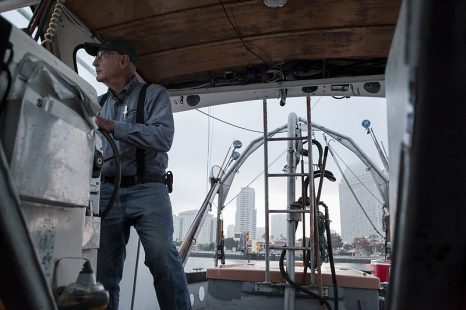
Port’s Tuna Harbor Proposal Disappoints San Diego Fishermen
Commercial fishermen who expected that a proposed redevelopment of the San Diego waterfront would include land set aside solely for their industry found out Thursday that the Port of San Diego may have other ideas. The flare-up over the future of the waterfront came as the port proposed new zoning designations as part of its Port Master Plan Update process. Along Tuna Harbor, the land that San Diego’s commercial fishermen hoped would stay classified as “commercial fishing” is being proposed as “mixed use,” allowing for flexibility in development instead of being dedicated to the infrastructure and expansion of the commercial fishing industry. Peter Halmay, along with several other fishermen, expressed frustration to port commissioners during a daylong public workshop. click here to read the story 12:27
Invasive European green crab found in Dungeness Bay
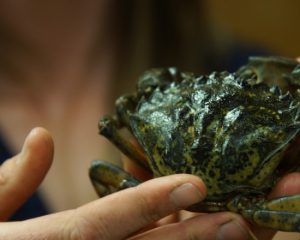 An invasive crab species scientists and locals feared to find on the North Olympic Peninsula was discovered in traps last week in Dungeness Bay. Staff and volunteers at the Dungeness National Wildlife Refuge found at least 13 European green crabs in Graveyard Spit across from Dungeness Landing and continue to investigate just how prevalent the species might be there. Emily Grason, program coordinator for Washington Sea Grant’s Crab Team, said these are the first of the crab to be found in inland Washington since the crab was captured in August 2016 in Westcott Bay off San Juan Island in Puget Sound. Sea Grant officials say the European green crab, a small shore crab measuring up to 4 inches across, is native to the Atlantic Ocean and Baltic Sea and is known for damaging the soft-shell clam industry in Maine. click> It will eat clams, oysters, mussels and marine worms, and is potentially harmful to birds and small crustaceans. click here to read the story 10:12
An invasive crab species scientists and locals feared to find on the North Olympic Peninsula was discovered in traps last week in Dungeness Bay. Staff and volunteers at the Dungeness National Wildlife Refuge found at least 13 European green crabs in Graveyard Spit across from Dungeness Landing and continue to investigate just how prevalent the species might be there. Emily Grason, program coordinator for Washington Sea Grant’s Crab Team, said these are the first of the crab to be found in inland Washington since the crab was captured in August 2016 in Westcott Bay off San Juan Island in Puget Sound. Sea Grant officials say the European green crab, a small shore crab measuring up to 4 inches across, is native to the Atlantic Ocean and Baltic Sea and is known for damaging the soft-shell clam industry in Maine. click> It will eat clams, oysters, mussels and marine worms, and is potentially harmful to birds and small crustaceans. click here to read the story 10:12
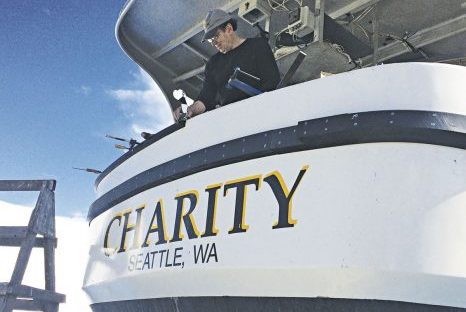
The Fishing Fleet: An invisible cornerstone of our economy
Hundreds of people who drive by on their way to and from wherever probably don’t notice, but you might, or at least you could. Look seaward when you pass Safeway and you’ll see a boatyard story that goes beyond the wooden boat identity Port Townsend is famous for. Below the tall masts of schooners and square riggers are the troll poles, gurdies and net rollers of the fish boats that call on Port Townsend for their winter’s maintenance. Some of their owners live here, and the vessels’ names are better known (Chichagof, Duna, Cape Cleare). Many come from distant ports, employing and trusting our community to keep their boats afloat. The marine trades constitute the third-largest employer in the county. This is big business for us. Tim Hoffman of Lowest Hadlock Shipwrights put this way: “Ninety percent of my business is fish boats, and they really don’t get the credit they deserve for what they’ve brought to this place, and I’m talking since the mid-’70s.” click here to read the story 08:51
Former ‘Deadliest Catch’ star Jake Harris arrested for car theft, drug possession
 Ex-“Deadliest Catch” star Jake Harris is in a sea of trouble. The former reality star was arrested over the weekend after allegedly stealing a car and for drug possession, according to TMZ. Harris, 31, reportedly drove from Washington to Phoenix with an unidentified married woman, then took off with her car Friday morning, according to the gossip website. Phoenix police reportedly found Harris at a Circle K on Saturday with Xanax and crystal meth. Harris was charged with one count of theft, one count of dangerous drug possession and one count of prescription drug possession, according to the Maricopa County Sheriff’s Office. Link (It doesn’t even look like the same guy. Drug’s destroy everything good.)
Ex-“Deadliest Catch” star Jake Harris is in a sea of trouble. The former reality star was arrested over the weekend after allegedly stealing a car and for drug possession, according to TMZ. Harris, 31, reportedly drove from Washington to Phoenix with an unidentified married woman, then took off with her car Friday morning, according to the gossip website. Phoenix police reportedly found Harris at a Circle K on Saturday with Xanax and crystal meth. Harris was charged with one count of theft, one count of dangerous drug possession and one count of prescription drug possession, according to the Maricopa County Sheriff’s Office. Link (It doesn’t even look like the same guy. Drug’s destroy everything good.)
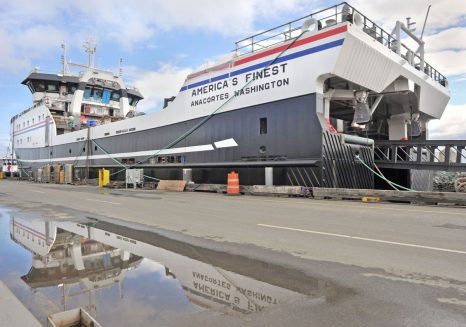
Dakota Creek Industries working on state-of-the-art fishing vessel
U.S. Rep. Rick Larsen met Thursday morning at Dakota Creek Industries with shipbuilders and commercial fishermen eager to show off a new, fuel-efficient fishing vessel. The ship, America’s Finest, is bigger, safer, more efficient and pollutes less than existing vessels, according to Fishermen’s Finest, the ship’s owner and operator. The company says the ship will have the smallest carbon footprint per ton of fish of any fishing vessel in the Bering Sea. The 262-foot-long ship is like a floating city, with its own fish processing factory, power plant and sewage treatment facility, said Kristian Uri, Fishermen’s Finest general manager. click here to view additional photo’s and read the story 11:01
Injured Fisherman rescued 600 miles off California coast by the 129th Rescue Wing
 Early Tuesday morning the 129th Rescue Wing flew two HH-60G Pave Hawk helicopters, one MC-130P Combat Shadow aircraft, and one 4-man Guardian Angel Pararescue team approximately 600 miles off the California coast to the GUTSY LADY 4. Once the 129th RQW personnel reached the GUTSY LADY 4, the Guardian Angel team boarded the fishing vessel and stabilized and secured the patient before hoisting him onto their helicopter. The Guardian Angel team provided care to the patient on board the helicopter until they arrived at San Jose Regional Medical Center Tuesday evening. On Sunday, the 129th RQW accepted the mission from Coast Guard District 11 and established a direct line of communication with the GUTSY LADY 4, which at the time was about 1,100 miles west of the San Francisco Bay Area. click here to read the story 09:06
Early Tuesday morning the 129th Rescue Wing flew two HH-60G Pave Hawk helicopters, one MC-130P Combat Shadow aircraft, and one 4-man Guardian Angel Pararescue team approximately 600 miles off the California coast to the GUTSY LADY 4. Once the 129th RQW personnel reached the GUTSY LADY 4, the Guardian Angel team boarded the fishing vessel and stabilized and secured the patient before hoisting him onto their helicopter. The Guardian Angel team provided care to the patient on board the helicopter until they arrived at San Jose Regional Medical Center Tuesday evening. On Sunday, the 129th RQW accepted the mission from Coast Guard District 11 and established a direct line of communication with the GUTSY LADY 4, which at the time was about 1,100 miles west of the San Francisco Bay Area. click here to read the story 09:06
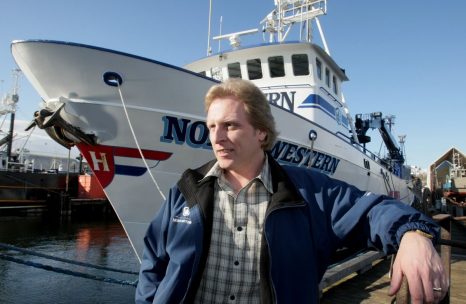
‘Deadliest Catch’ captain Sig Hansen won’t face charges in alleged abuse
Celebrity crab-boat captain Sig Hansen won’t face criminal charges on claims that he sexually abused his toddler daughter nearly three decades ago, Snohomish County prosecutors said Tuesday after conducting a review of old case materials. “We have concluded that it’s outside our charging standards and we’re going to maintain our original decision not to charge Mr. Hansen,” Deputy Prosecuting Attorney Matthew Baldock said. Meantime, a civil lawsuit against Hansen brought by his estranged daughter, Melissa Eckstrom, remains on hold until the state Court of Appeals decides whether a King County judge’s ruling that would allow the civil case to go to trial is legally sound. Click here to read the story 11:42






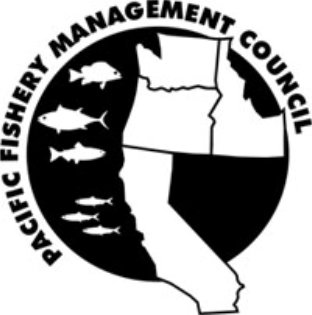 The Pacific Fishery Management Council on April 27 recommended new regulations governing the use of electronic equipment to monitor at-sea discards of target, non-target and prohibited fish for certain West Coast groundfish fisheries. If approved by National Marine Fisheries Service (NMFS), this will mark the culmination of a four-year process to develop and implement regulations for electronic monitoring system use in these fisheries. Under the council’s catch share program, every vessel must carry a human observer to help monitor catch that is allocated to each vessel owner, including discards that happen at sea.
The Pacific Fishery Management Council on April 27 recommended new regulations governing the use of electronic equipment to monitor at-sea discards of target, non-target and prohibited fish for certain West Coast groundfish fisheries. If approved by National Marine Fisheries Service (NMFS), this will mark the culmination of a four-year process to develop and implement regulations for electronic monitoring system use in these fisheries. Under the council’s catch share program, every vessel must carry a human observer to help monitor catch that is allocated to each vessel owner, including discards that happen at sea. 